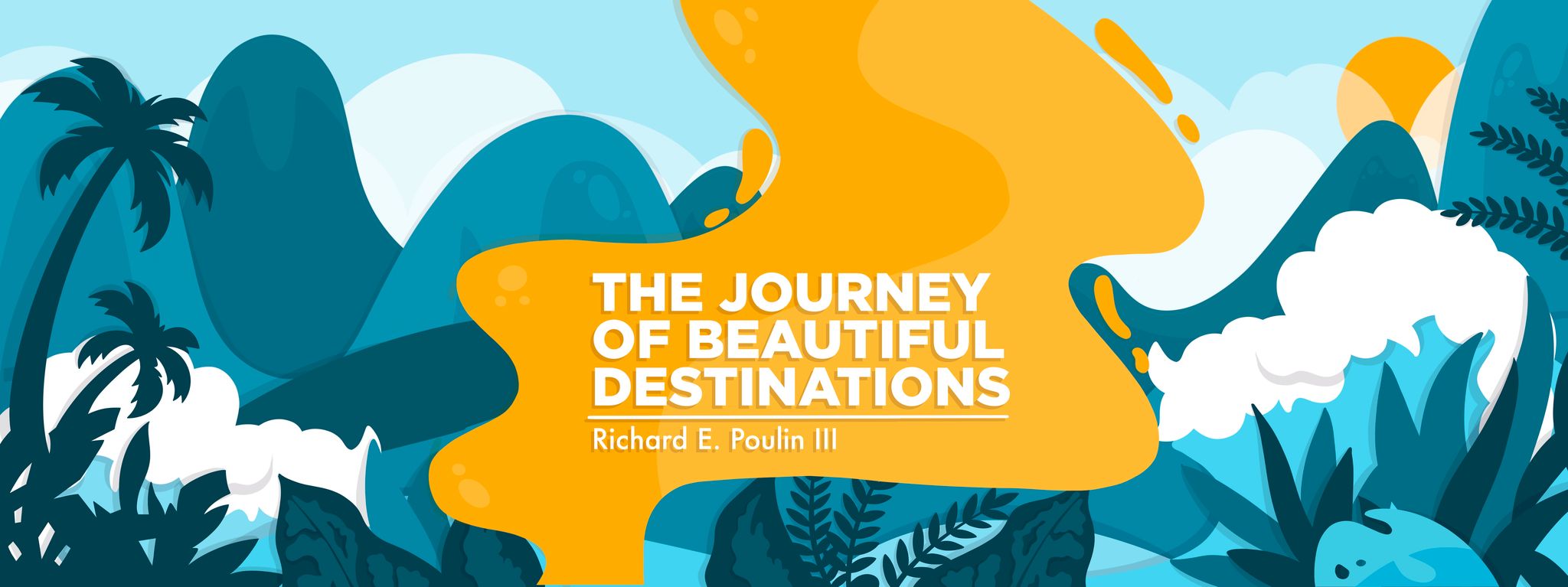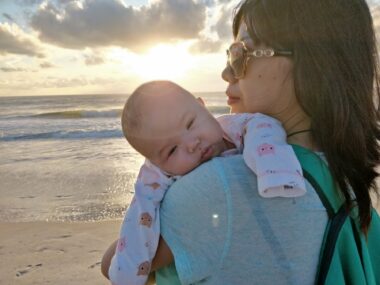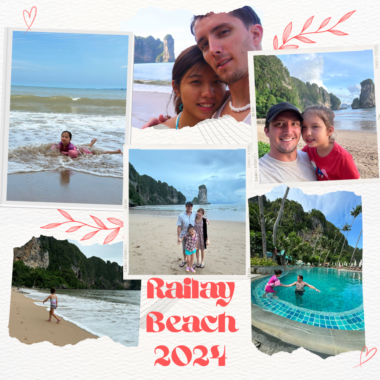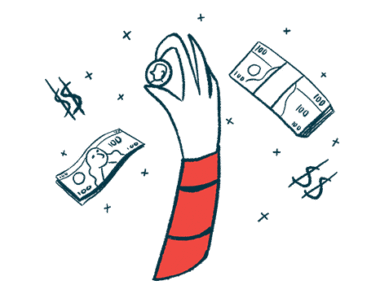How summer waves and grains of sand create cherished moments
A family returns to a special beach with a new perspective
Written by |

Many parents may dread the summer break from school, but for my wife, Judy, and me, it’s a time to create memorable moments. With our daughter, Rylae-Ann, the greatest of these is when we’re at the beach.
Growing up on an island in the Pacific, I’ve always connected with the sea. When Rylae-Ann was born, Judy and I took a special trip to the ocean so that our daughter could dip her toes in the sea foam, where the waves crashed and rolled along the shore. We wanted her to feel the grains of sand on her toes and hear the ocean’s power. At this time our dreams and plans involved a life of family activities at the beach.
These dreams quickly faded when Rylae-Ann was 3 months old and we began seeing some alarming signs. After eight months of searching for answers, which involved a battery of pokes, scans, and investigations, we learned that she had a rare disease known as aromatic l-amino acid decarboxylase (AADC) deficiency. Having an answer was great, but it was one that parents fear the most.
AADC deficiency is a debilitating disease that comes with life-threatening symptoms. It takes an incredible toll on the family, which must become full-time caregivers while trying to clock in hours at work to pay for mounting medical bills. The dream of going to the beach didn’t seem like it would ever be a possibility for us.
Accepting fate creates space to make memories

Richard E. Poulin III’s wife, Judy, carries their daughter, Rylae-Ann, when she was just a few months old. (Photo by Richard E. Poulin III)
Accepting our new life wasn’t easy. Because of our initial fear of straying too far from medical supplies and resources, we isolated ourselves indoors. We cut social connections and no longer posted adorable baby photos online. Judy and I struggled to care for our daughter while internally battling the incomprehensible situation that had befallen our family.
Over time, working as a team, our family adjusted to the new life. I realized that we were losing time we’d never get back. This was our life, and the precious moments of our daughter’s youth were ticking by.
Little by little, we discovered how to create a caregiver lifestyle, which included reconnecting with the water.
Accepting our fate gave us a new perspective. Water play was a fun activity that helped our daughter improve her sensory-processing issues. Playing in the sand was an opportunity to work on fine motor skills. Most importantly, being at the beach allowed our family to make memories.
Returning to Railay Beach
Judy and I both spent our adolescent years growing up in Thailand. One of our special places to escape to was Railay Beach, a remote, white-sand beach on a small peninsula in the southwest. It’s surrounded by limestone cliffs covered in dense jungle, making the beach accessible only by boat. It was remote and isolated back then but has since become popular among tourists.
The beach was so important to us that we named our daughter after it, using the alternative spelling of Rylae. Obviously, taking our daughter to this beach was part of our dreams. However, it was off-limits because of Rylae-Ann’s low muscle tone and her risk of becoming ill. Judy and I would also have to lug around a large number of essential supplies.
As teens high on adrenaline, hopping on a long-tail boat with only a backpack was easy. As caregivers, it just wasn’t worth the hassle.

A collage of photos from the Poulin family’s 2024 summer vacation to Railay Beach in Thailand. (Courtesy of Richard E. Poulin III)
Fortunately, Rylae-Ann had gene therapy when she was 18 months old. Her perseverance and determination to work through therapy sessions allowed us to finally fulfill our dreams of a family trip to Railay Beach.
We recently spent a week at our spot, spoiling ourselves by staying at a resort — a drastic upgrade from the bungalows we used to rent as teens.
In the resort’s pool, Rylae-Ann could practice jumping and improve her gross motor skills in the weightless water.
Next, we shifted to the beach, where Rylae-Ann used her core muscles and worked on balancing in the break of the waves.
While we were in our room or at a restaurant, Rylae-Ann ate independently, leaving a crumb trail that would make Hansel and Gretel envious. Since it was a resort, we didn’t worry about cleaning up.
Our dreams have changed over time. Through acceptance, we have created new ones. Today, rather than being envious, we celebrate the happiness of other families and have play dates with them.
Time flies and moments pass in the blink of an eye. They might not be the moments we expected, but our dreams can still come to fruition. By adapting our lives, we’ve learned to incorporate our dreams of waves and sand.
Note: AADC News is strictly a news and information website about the disease. It does not provide medical advice, diagnosis, or treatment. This content is not intended to be a substitute for professional medical advice, diagnosis, or treatment. Always seek the advice of your physician or other qualified health provider with any questions you may have regarding a medical condition. Never disregard professional medical advice or delay in seeking it because of something you have read on this website. The opinions expressed in this column are not those of AADC News or its parent company, Bionews, and are intended to spark discussion about issues pertaining to aromatic l-amino acid decarboxylase deficiency.






Leave a comment
Fill in the required fields to post. Your email address will not be published.